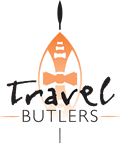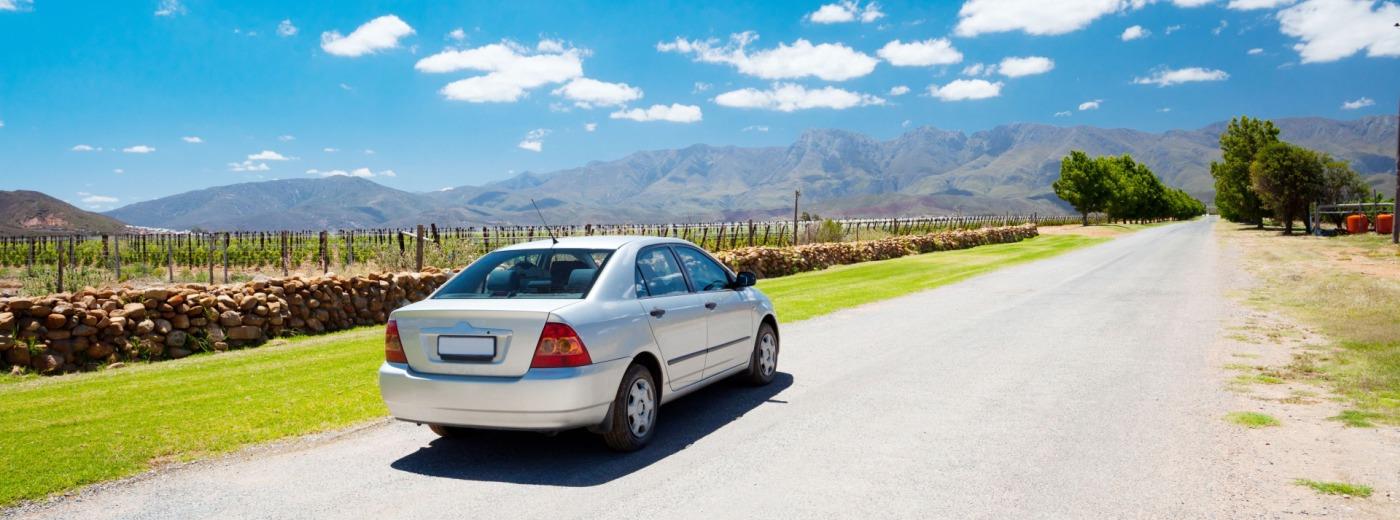Introduction, Road Safety
Driving in South Africa is generally safe and enjoyable, and it is easy see the major highlights in a 2 or 3 week driving holiday.
In General
South Africans drive on the left hand side of the road, and all signposts are written in English. It is law to wear a seat belt at all times, and using a mobile phone when driving is prohibited.
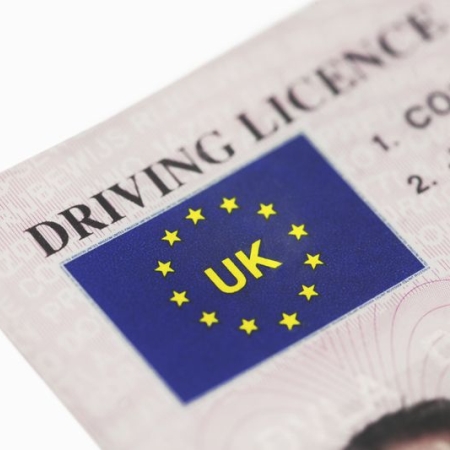 All drivers must have a valid driving licence from their country of residence.
All drivers must have a valid driving licence from their country of residence.
You can drive in South Africa on a British licence or any other licence that is printed in English - however, if the licence is not printed in English, then you will need to obtain an International Drivers Licence.
The licence must also have a signature and a photograph of the holder, and must be valid beyond the point of returning the vehicle. If you are from the UK, you do not need to contact the DVLA to obtain a code.
You must carry your driving licence with you at all times when driving in South Africa. It is also a good idea to keep a photocopy of your drivers licence separate in your luggage, and also leave a copy at home with family or friends.
Please note that the various car hire companies have different regulations regarding the length of time that you need to have held a driving licence, so it is advisable to check with your hire car company about their requirements.
The general speed limit is a comfortable 120 km/h on the tar roads outside of towns.
Self-Drive Holidays In South Africa
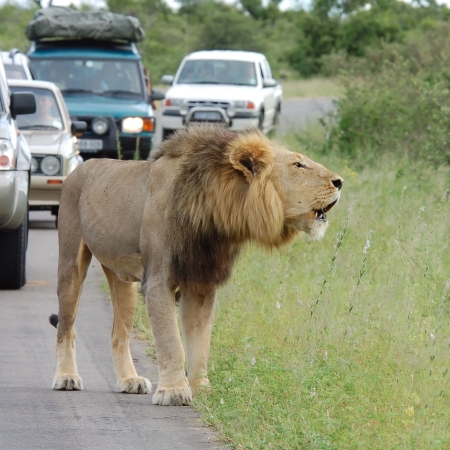 At Travel Butlers we have been planning self-drive holidays to South Africa since 2003, and our team of travel consultants all have first-hand experience of driving in the rainbow nation.
At Travel Butlers we have been planning self-drive holidays to South Africa since 2003, and our team of travel consultants all have first-hand experience of driving in the rainbow nation.
We always take care to ensure that clients do not spend too long in the car on any one day (the distances in South Africa often surprise people), and we provide detailed directions and rental cars with GPS as well as general information on driving in South Africa.
The most popular self-drive routes are Cape Town, the garden route and a safari, exploring Kruger on a self-drive safari and travelling through the less visited areas of Durban and Kwa-Zulu Natal - although as everything is tailor-made to each client's requirements we would be delighted to help you plan and book your trip to South Africa whatever your interests.
Road Conditions
The main roads and highways are generally maintained in an good condition, and are straight, long and fast. There are very few roads in South Africa where you would need a 4WD. Even in the self-drive National Parks and safari areas such as Kruger or Hluhluwe, the roads are good and a 2WD can adequately cope with the odd bit of unevenness.
Many of the major main road are toll roads, in order to help maintain them in their present good condition. Tolls range from a few Rand to over R50, and you can pay either by cash, or some toll booths will take Visa or MasterCard credit cards. The toll roads are clearly signposted, and give you plenty of warning, so that you can get your money ready. However, if you do not feel like parting with any money, you can always take the alternative route which will be signposted as a non-toll road, but in general this will be longer. Many hire car companies also now fit their vehicles with an automatic toll reader, so the car captures the toll fees instead and these are billed back to you at the end of the rental period.
Road Signs And Robots
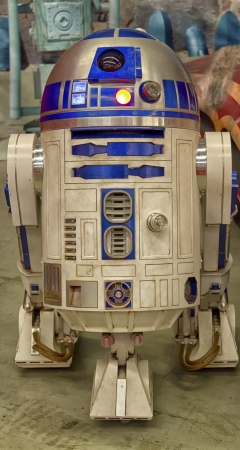
Something else to be aware of during your self-drive holiday through South Africa is the erractic nature of road signs, and the inconsistencies between them and the published road maps.
You may think that the route you are about to embark on is easy to follow, but certainly in the more remote areas, roads suddenly appear that are not marked on maps, the road numbers and town names are completely different from what you are expecting, or road signs suddenly stop altogether.
Given this, it is not uncommon that you may need to ask for directions at a petrol station or in a town, and if this happens you may be surprised to get the response "turn left at the next robot...". You have not suddenly been transported into a Star Wars film: a 'robot' is the South African term for traffic lights.
I'm sure we were not the first or last visitors to be disappointed that we were not taking directions from R2D2...so these are not the droids you are looking for.
People and Animals
Outside of town areas, it is a common sight to see people walking along the side of the roads, especially schoolchildren who sometimes have a long journey on foot to get to and from their school.
In addition, livestock are generally not fenced in, and have a tendency to wander wherever they feel like. Don't be surprised to go over a hill or round a bend in a road to find a herd of cows crossing the road in front of you, or several goats grazing right at the roadside.
During the day, it is easy to see and avoid people and animals, but at night it is more difficult, and extra care should be taken.
Speeding
Speed cameras operate in cities and towns. If you are caught on camera, the fine will go straight to the hire car company, who will simply debit your credit card with the amount. A more common speeding trap is on the outskirts of towns, where traffic police wait for the unsuspecting driver to come racing out of the built up area.
If you are caught speeding by traffic police, the correct procedure is to give the traffic officer your details (name, car rental agency details and car registration number) and ask him to issue you with a speeding fine ticket.
You can hand the ticket into the hire car company when you return the car but if you forget, don't worry - the fine is automatically be sent to the car rental company in any case, who will then redirect the cost of the fine to you together with an admin fee.
You also have the option of taking the speeding ticket to a local police station and paying it directly - however, this may not be a feasible option as it may involve a long detour and eat into valuable holiday time.
In a few areas, it is worth mentioning that some traffic officers are asking for an on-the-spot cash fine instead of writing you a speeding ticket - if you feel comfortable refusing to pay this, please do, as on-the-spot fines actually do not exist under SA traffic law.
Buying Petrol
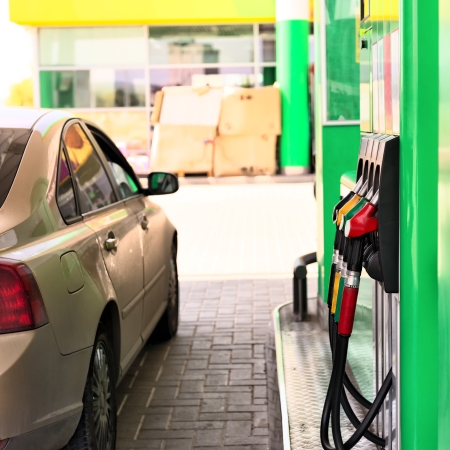 It is worth noting that none of the petrol stations in South Africa are self-service. When you pull into a petrol station, you will generally be waved to a free petrol pump by an enthusiastic attendant, who are all dressed in smart uniforms and generally welcome you with a big smile. Do make sure that he waves you to the correct pump, however, as you do not want him putting petrol in your diesel car.
It is worth noting that none of the petrol stations in South Africa are self-service. When you pull into a petrol station, you will generally be waved to a free petrol pump by an enthusiastic attendant, who are all dressed in smart uniforms and generally welcome you with a big smile. Do make sure that he waves you to the correct pump, however, as you do not want him putting petrol in your diesel car.
As a matter of course, while the car is being filled up, they will clean your windscreen for you - and take great care in making sure even the smallest dirt mark is wiped away. If you are really lucky, they may clean all the other windows as well!
It is customary to tip around R5-R10 to the petrol attendants, but you may wish to tip more if they check the oil, water and tyres or if your car is exceptionally dirty!
The majority of the larger petrol stations will take overseas credit cards, but some of the smaller ones may not. You will generally find an ATM on site so that you can withdraw cash if necessary, but in the more remote places, even this facility may not be present.
You should therefore always ensure that you have sufficient cash whenever you pull in to fill up with petrol - just in case!
Border Crossings
If you want to drive across the border from South Africa into one of the neighbouring countries, then you need permission from your hire car company in the form of a letter including the vehicle registration number and chassis number. This must be presented at the border post, and a permit will be issued which must be carried at all times. There may be a fee payable as well.
In terms of paperwork, you can expect to spend about 15-30 minutes walking from Immigration to Customs, and having your passport checked and stamped, but overall, the procedure is surprisingly painless.
Safety Precautions
Diving in South Africa is generally safe, and many of these warnings are particularly applicable to driving in major urban areas and townships rather than the rural areas and smaller cities and towns that most visitors will spend most of there time in. Having said this, we strongly advise that all drivers from overseas try to apply the following precautions:
1. Drive with your doors locked and windows wound up, especially when stopped at traffic lights.
2. Don't ever stop to pick up hitchhikers, however innocent, lost or appealing they look. If you are worried about someone's plight, stop at the next town and report it to someone there.
3. Do not leave anything valuable on show in your car when you leave it unattended, and ALWAYS lock your car when you leave it, even if you are only going to be gone for a few minutes.
4. Try to always park in a busy, well-lit area.
5. Take advice from your hosts where you are staying, and ask if there are any areas that tourists should avoid driving through.
6. Don't get out of your car if you are knocked or hit from behind in suspicious circumstances.
7. Don't do road rage!
Why Book With Us?
- Specialists in African Holidays
- Friendly Expert Service
- Hundreds of Special Offers
- Tailor-made itineraries
- Price Promise
- No Credit Card Fees
- We can book your flights
- ATOL Protected
- UK Based
Financial Protection
All the flights and flight inclusive holidays on this websiteare financially protected either by ABTOT or the ATOL scheme.
When you pay for something protected by the ATOL scheme you will be supplied with an ATOL Certificate. Please ask for it and check to ensure that everything you booked (flights, hotels and other services) is listed on it.
Please see our booking conditions for further information.
